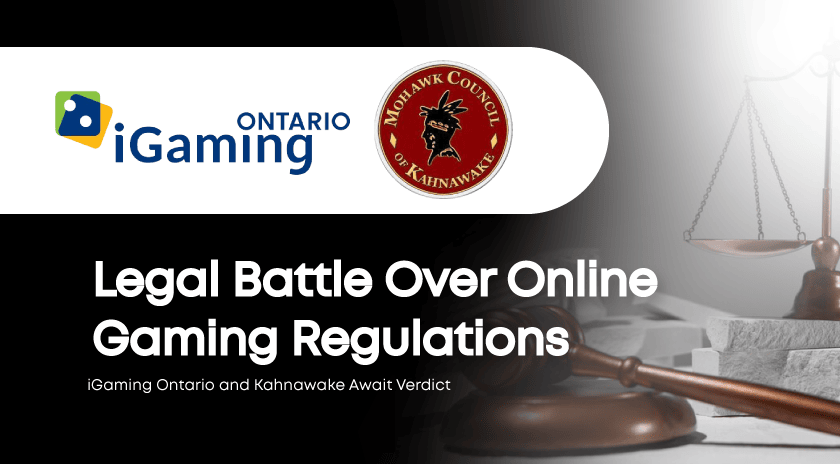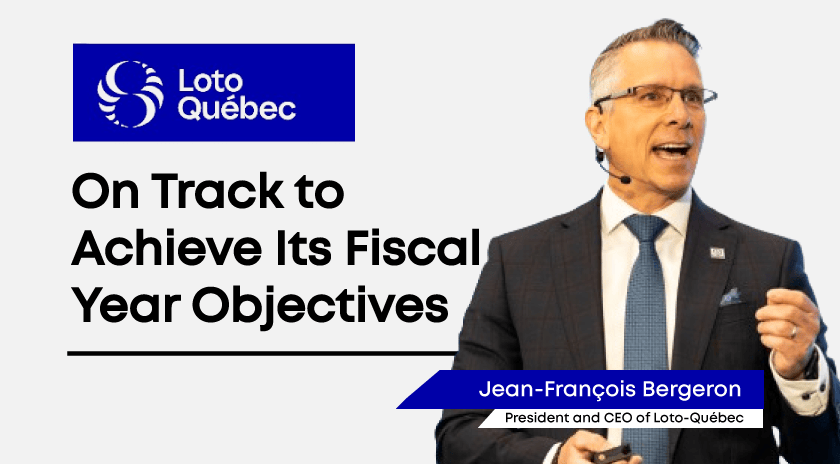iGaming Ontario and Kahnawake Await Verdict: Legal Battle Over Online Gaming Regulations

The Ontario Superior Court recently concluded hearings between the Mohawk Council of Kahnawake (MCK) and Ontario’s online gaming regulator (iGaming Ontario), sparking anticipation for a significant legal ruling. The Mohawk Council of Kahnawake aims to challenge Ontario's online gaming legislation, arguing that it contradicts Canada’s Criminal Code and infringes upon Kahnawake's jurisdiction over its online gaming industry, which has been regulated by the Kahnawake Gaming Commission (KGC) for over two decades.
Legal Proceedings: Arguments and Counterarguments
The hearings, which started a few days back, saw rigorous debates over Ontario's interpretation of the terms "conduct and manage" in relation to online gaming regulations. Tonya Perron, MCK chief and legal expert, highlighted concerns regarding Ontario's regulatory scheme, emphasizing the need for clarity and adherence to legal gambling-related standards.
Eric Doucet, in-house counsel for the MCK, expressed reservations about Ontario's claim of conducting and managing gaming, stressing the prominent role played by private entities in the growth of the Ontario online gambling industry.
This recent clash between iGaming Ontario and Kahnawake Gaming Commission extends beyond legal technicalities, touching upon broader jurisdictional disputes and potential industry ramifications. The Kahnawake Gaming Commission's refusal to register with the regulator emphasizes the sovereignty of Kahnawake's jurisdiction over gaming operations. However, should the court rule in favor of Ontario's regulatory approach, it could pave the way for similar measures in other Canadian provinces, intensifying challenges for the Kahnawake Gaming Commission in defending its jurisdictional rights.
Disputes Over Conducting and Managing Gaming
The essence of the matter lies in Ontario's approach to regulating online gaming since 2021. While online gaming and sports betting businesses are required to register with iGaming Ontario and enter into operator agreements, the MCK argues that this does not align with the standards of "conducting and managing" gaming as emphasized in Canada’s Criminal Code.
Eric Doucet, in-house counsel for the Mohawk Council of Kahnawake, contends that private companies hold significant control over gaming operations, raising questions about Ontario's direct involvement in conducting and managing gaming activities.
Scott Hutchison, representing iGaming Ontario, counters this argument by highlighting the province's high-level oversight of gaming and sports betting. Nevertheless, the Kahnawake Gaming Commission has steadfastly refused to register with the regulator, asserting its jurisdictional right to operate gaming independently from iGaming Ontario. This jurisdictional standoff reflects broader tensions between provincial and indigenous authorities over regulatory authority and taxation.
The outcome of this legal battle holds significant implications for Kahnawake’s online gaming industry, particularly concerning access to the Ontario online gambling market. The decision could influence the trajectory of online gaming regulations across Canada, shaping the future of the industry, so all eyes are on the Ontario Superior Court, and rightfully so when the stakes are so high.
Legal Issues Arose Back in 2022
The Mohawk Council of Kahnawake (MCK) initiated legal action against the province of Ontario back in 2022, contesting the legality of Ontario's iGaming regulatory regime. In a complaint filed back then, the MCK accused Ontario of unilaterally reinterpreting the "conduct and manage" laws, thus granting iGaming Ontario authority over all online gambling activities within the province. The lawsuit, naming iGaming Ontario and the Attorney General of Ontario as defendants, underlined the MCK's assertion of inherent Indigenous jurisdiction, particularly concerning Kahnawake's Reserve in Quebec.
The Kahnawake nation has a rich history in the online gaming industry, spanning over 25 years. Mohawk Internet Technologies (MIT), wholly owned by the MCK, has provided infrastructure support to Quebec online gambling operators. However, despite this longstanding presence, Kahnawake entities face exclusion from the lucrative Ontario gambling market, impacting the community's economic sustainability.
Central to the dispute are issues of tribal sovereignty and financial impact. The MCK contends that Ontario's iGaming regulations hinder Kahnawake's gaming industry and pose a significant threat to its economic well-being. The regulatory framework imposed by Ontario restricts gaming operators licensed by the Kahnawake Gaming Commission (KGC) from conducting activities in Ontario without registering with the Alcohol and Gaming Commission of Ontario (AGCO).
Michael Delisle, Jr., Chief of the MCK, emphasized the adverse effects of Ontario's iGaming regime, stating, "Until Ontario sought to impose its ill-designed reinterpretation of 'conduct and manage' on operators and service providers, Kahnawake was able to successfully operate across Canada in a regulated manner." The economic consequences of Ontario's regulatory framework jeopardize vital revenue streams that support essential community programs and services.
Our Take: Balancing Legal Rights and Market Growth
The legal battle between Ontario and Kahnawake highlights the delicate balance between jurisdictional rights and the growing Canadian and Ontario online gaming market. At QuebecGambling.ca, we acknowledge the validity of both parties' arguments. While Ontario's iGaming regulator strives to establish a solidified regulatory framework and solidify its position in the Canadian market, the Kahnawake Gaming Commission rightfully seeks to preserve its jurisdiction over its online gaming industry, a responsibility it has upheld for over two decades.
We hope Justice Brownstone's decision will strike a fair balance, satisfying both parties without impeding the remarkable growth witnessed in Ontario's iGaming market in recent months. Achieving this balance is crucial for ensuring a prosperous and equitable online gaming environment for all stakeholders, as well as all parties involved, and the Canadian iGaming community as a whole.
Sources: Poker.org News, (2)

